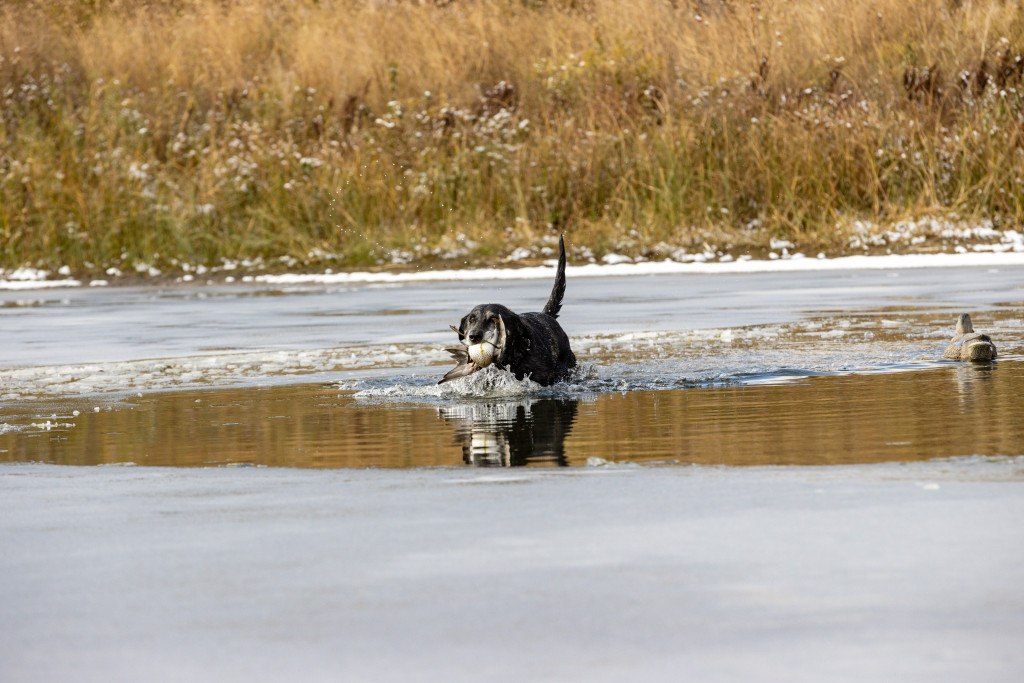
By Todd Mills
It’s impossible to measure the heart of your hunting dog, or in my experience, your retriever. Even more impossible is measuring when you should shut down your dog, or in some cases, manage them into their twilight years.
No matter how willing the heart is, the body will grow weak. Long gone might be the days of the perfect water entry, or the sunrise to sunset upland hunt. Managing your own expectations and caring for your elderly dog will be the key to extending those days in the field, or at best, enjoying the company of others.
Here are a few ideas to help extend the hunting years for your gun dog.
Keep the Weight Off
Much like us, as your gun dog ages, they burn fewer calories and metabolism slows down. Feeding them the same amount as you did when they were younger will lead to weight gain. As my dogs get into the late single digit years, I’ll pick dog food with a lower protein/fat content, especially during the off season. Make sure to consult with your vet as well to determine what the best option might be. Don’t skimp when it comes to the quality of your dog’s food. Also, determine your dog’s body type — shape and size can have an impact on how many calories a dog needs. While most dogs arrive at physical maturity around one, they may not fill out until year five or later.
Rest and Recuperate
Senior dogs take much more time to recover than their younger versions. Giving your dog rest periods in between hunts is crucial to allow them to hunt longer and avoid injury. It becomes imperative that you learn to recognize the signs of when your dog gets tired. Exhaustion may appear in different forms, but normally, you’ll see a decline in how aggressive they are when hunting. Sluggish, heavy panting and lack of interest can be a sure sign to put your dog up and give them rest.
Some dogs need more rest than others, so monitor their energy levels each day to determine when it’s time to cut them loose again.
Have a Backup Plan
With the exception of 3 months, I’ve had a hunting dog every day for the last 40 years. I couldn’t hunt without one, as it’s one of the many joys of my hunting experience. Be prepared to break in a new pup as your senior dog enters the last stage. Not only will that allow you to have a backup if you lose your dog unexpectedly, but also provides some off time for your seasoned veteran. Too many times I’ve seen hunters wait too long and are miserable hunting without a dog for a year or two. They’ll make great companions, and in some cases, the young pup can learn the ropes from the older dog.
